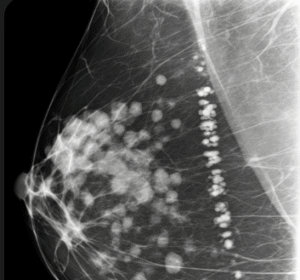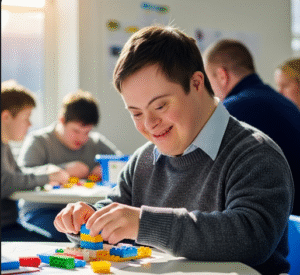Overview
Disorganized schizophrenia, also known as hebephrenic schizophrenia, is a severe subtype of schizophrenia characterized by disorganized thinking, speech, and behavior. Patients often show inappropriate emotional responses, lack of motivation, and difficulty performing daily tasks. In Korea, psychiatric hospitals and mental health clinics provide specialized diagnosis, antipsychotic treatment, psychotherapy, and long-term rehabilitation for individuals with this condition.
What is Disorganized Schizophrenia?
Disorganized schizophrenia is a chronic mental health disorder in which thoughts and behaviors are highly fragmented and inconsistent. Unlike paranoid schizophrenia, where delusions and hallucinations dominate, this subtype involves disorganized communication, social withdrawal, and emotional flatness or inappropriateness.
Symptoms
- Disorganized speech (incoherent, fragmented, or illogical).
- Disorganized behavior (bizarre movements, inappropriate clothing, poor hygiene).
- Flat or inappropriate affect (laughing at sad events, emotional indifference).
- Difficulty completing daily tasks (e.g., cooking, working, or maintaining relationships).
- Lack of motivation and neglect of personal responsibilities.
- Cognitive impairment (difficulty concentrating or understanding).
Causes
- Genetic predisposition – family history of schizophrenia increases risk.
- Neurochemical imbalances – abnormal dopamine and glutamate activity.
- Brain structure changes – reduced gray matter and abnormal neural connectivity.
- Environmental factors – trauma, stress, urban living, or prenatal complications.
- Substance abuse – can trigger or worsen symptoms.
Risk Factors
- Family history of schizophrenia or psychotic disorders.
- Exposure to childhood trauma or abuse.
- Early life complications (birth trauma, malnutrition, infections).
- Chronic stress and social isolation.
- Use of hallucinogenic or psychoactive drugs.
Complications
- Inability to maintain employment or education.
- Social withdrawal and poor quality of life.
- Homelessness or dependence on long-term care.
- Increased risk of substance abuse.
- Higher risk of suicide attempts due to severe mental distress.
- Strain on family members and caregivers.
Prevention
Although schizophrenia cannot be completely prevented, early intervention improves outcomes:
- Early screening and psychiatric evaluation for at-risk individuals.
- Managing stress and avoiding drug use.
- Continuous treatment to prevent relapses.
- Support programs for families and caregivers.
Treatment Options in Korea
- Diagnosis
- Psychiatric evaluation (interviews, observation of symptoms).
- Structured diagnostic tools like DSM-5 or ICD-10.
- Brain imaging (MRI, CT) and lab tests to rule out other conditions.
- Medical Treatments
- Antipsychotic medications (e.g., risperidone, olanzapine, aripiprazole) are first-line.
- Clozapine for treatment-resistant cases.
- Adjunctive medications for anxiety, depression, or insomnia.
- Psychological Therapies
- Cognitive-behavioral therapy (CBT) to improve thinking patterns.
- Social skills training to help patients interact effectively.
- Family therapy to support caregivers and reduce relapse rates.
- Rehabilitation & Support
- Occupational therapy for job and daily life skills.
- Community-based mental health centers for long-term support.
- Residential care for severe cases.
- Advanced & Specialized Treatments in Korea
- Electroconvulsive Therapy (ECT) for severe, unresponsive cases.
- Transcranial Magnetic Stimulation (TMS) as a research-based option.
- Integrated programs in top hospitals focusing on both psychiatric care and rehabilitation.













